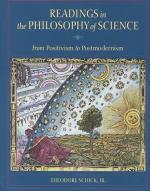|
This section contains 1,987 words (approx. 7 pages at 300 words per page) |

|
POSITIVISM. The terms positivisme and positiviste were coined by Auguste Comte (1798–1857), who first employed them in his Discours sur l'ensemble du positivisme (1848) and his Catéchisme positiviste (1852).Comte's neologisms were accepted by the Academie Française in 1878. Equivalent English terms were employed by John Stuart Mill in his Auguste Comte and Positivism (1865).
For Comte, "positive philosophy" means real, certain, organic, relational philosophy, and positivism is a philosophical system founded on positive facts and observable phenomena. Because positive facts are not isolated but comprehended by the positive sciences, positivism is a philosophy drawn from the whole of those sciences, and the scientific method determines positivist doctrine. But positivism, as developed by Comte, is both a philosophical system and a religious system that develops from that philosophy.
Positivism and the Three-State Law
In his Cours de philosophie positive (1830–1842), Comte explains the relation of positive philosophy to the positive sciences: "The...
|
This section contains 1,987 words (approx. 7 pages at 300 words per page) |

|


